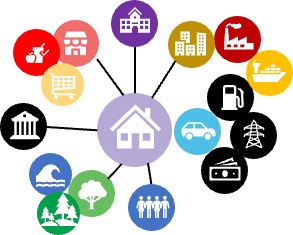REF: EGIS2020-SPK2
This PhD is focused on developing the concept, theory and measurements for adaptive capacity and demand participation. In Energy Transition, adaptive capacity means the ability to continue meeting essential needs and carry out essential activities while reducing fossil fuel use. The concept of adaptive capacity was first proposed in relation to transport behaviour change.[1] The theory of Anthropogenic System Dynamics holds that habitual behaviour is very difficult to change if the built environment and technology do not change, but that behaviour adaptation is very fast when the technology enterprise changes the normal conditions.[2] A previous study demonstrated generating data on adaptive capacity and demand participation by using game-like experience of increasing fuel price in a sim of user-provided “normal” transport activities.[3] exploration of net zero augmented reality. Gamification has also been used in research to work through complex engineering systems alternatives and decisions within the context of stakeholder values and local eco-social prerogatives.[4]
“Play” is a way people can understand and explore changes in familiar systems. Very few people understand the energy systems that provide for their needs. Very few people understand how transition of energy systems to low carbon will affect their lives and how they will adapt. This means that fear of the unknown creates a fertile market for suboptimal expectations and poor decisions in households, companies, councils and academia. The carbon intensive society has low collective understanding of the energy transition, so we will design a game experience to explore adaptations, demand side participation, sensemaking and pathfinding in energy transition. The project will provide theoretical foundation and practical implementation for a range of tools used in the Islands Centre for Net Zero , Transition Lab action research programme.
The objective of the PhD is to develop the necessary theory, interfaces and techniques to create a “serious game” for a range of stakeholders and to process and analyse the results. The challenge is to use gamification to create an alternative, but understandable and explorable reality, and to generate real problem solving and adaptive responses from participants.
The multidisciplinary nature of the project requires a large supervisory team. It is expected that the student will be based primarily at Heriot-Watt University but you will be expected to spend several months working with the teams in the Scottish Islands and at the Orkney Campus.
The supervisory team brings the following skill sets to the project:
Professor Susan Krumdieck: Energy systems engineering, Energy Transition
Professor Eddie Owens: Sustainable Energy in Buildings
Funding
The project is funded for 3 years and covers the PhD fees and stipend (currently £15 285 per annum).
Eligibility
This project is available to home (UK) or EU students. The successful candidate will have a B.Sc. (2:1 or higher) and M.Sc. (distinction) or equivalent, and ideally additional experience in computer science, modelling, image analysis or engineering, ideally with some experience of applying these skills to other disciplines (e.g. in the life sciences). You will have good interdisciplinary background in social You will embrace new challenges and environments and be able to fit into new teams rapidly. You must be able to describe complex issues in a means that is accessible to fishermen with whom you will work.
How to apply
To apply you must complete our online application form. Please select PhD programme Energy Transition and include the full project title, reference number and supervisor (Prof SP Krumdieck) on your application form. Ensure that all fields marked as ‘required’ are complete.
You must complete the section marked project proposal; upload a supporting statement documenting your reasons for applying to this particular PhD project, and why you are an ideal candidate for the position. You will also need to provide a CV, a copy of your degree certificate/s and relevant transcripts. You will be asked to enter details of an academic referee who will be able to provide a technical reference. Until your nominated referee has uploaded their statement, your application will not be marked as complete and will not be considered by the review panel. You must also provide proof of your ability in the English language (if English is not your mother tongue or if you have not already studied for a degree that was taught in English within the last 2 years). We require an IELTS certificate showing an overall score of at least 6.5 with no component scoring less than 6.0 or a TOEFL certificate with a minimum score of 90 points.
Please contact Prof Susan Krumdieck (s.krumdieck@hw.ac.uk) for further information or an informal discussion.
Time-lines
The islands Centre for Net Zero is anticipated to offer a scholarship for this project to be advertised in November. Applicants must be available to start the PhD in 2023.
Submit to: Susan Smith
[1] Krumdieck, S., S. Page, A. Dantas, Urban form and long-term fuel supply decline: A method to investigate the peak oil risks to essential activities, Transportation Research Part A: 44 (2010) 306-322.
[2] Krumdieck, S., Transition Engineering, Building a Sustainable Future, CRC Press, Taylor & Francis Group, (2019).
[3] Watcharasukarn, M., Krumdieck, S., Green, R. and Dantas, A., Researching Travel Behavior and Adaptability: Using a Virtual Reality Role-Playing Game. Simulation & Gaming, Vol. 42, No. 1 (2011) 100-117.
[4] Blair, N., Pons, D., Krumdieck, S., Electrification in remote Communities: Assessing the value of electricity using a community action research approach in Kabakaburi, Guyana, Sustainability, 11 (2019) 2566.
